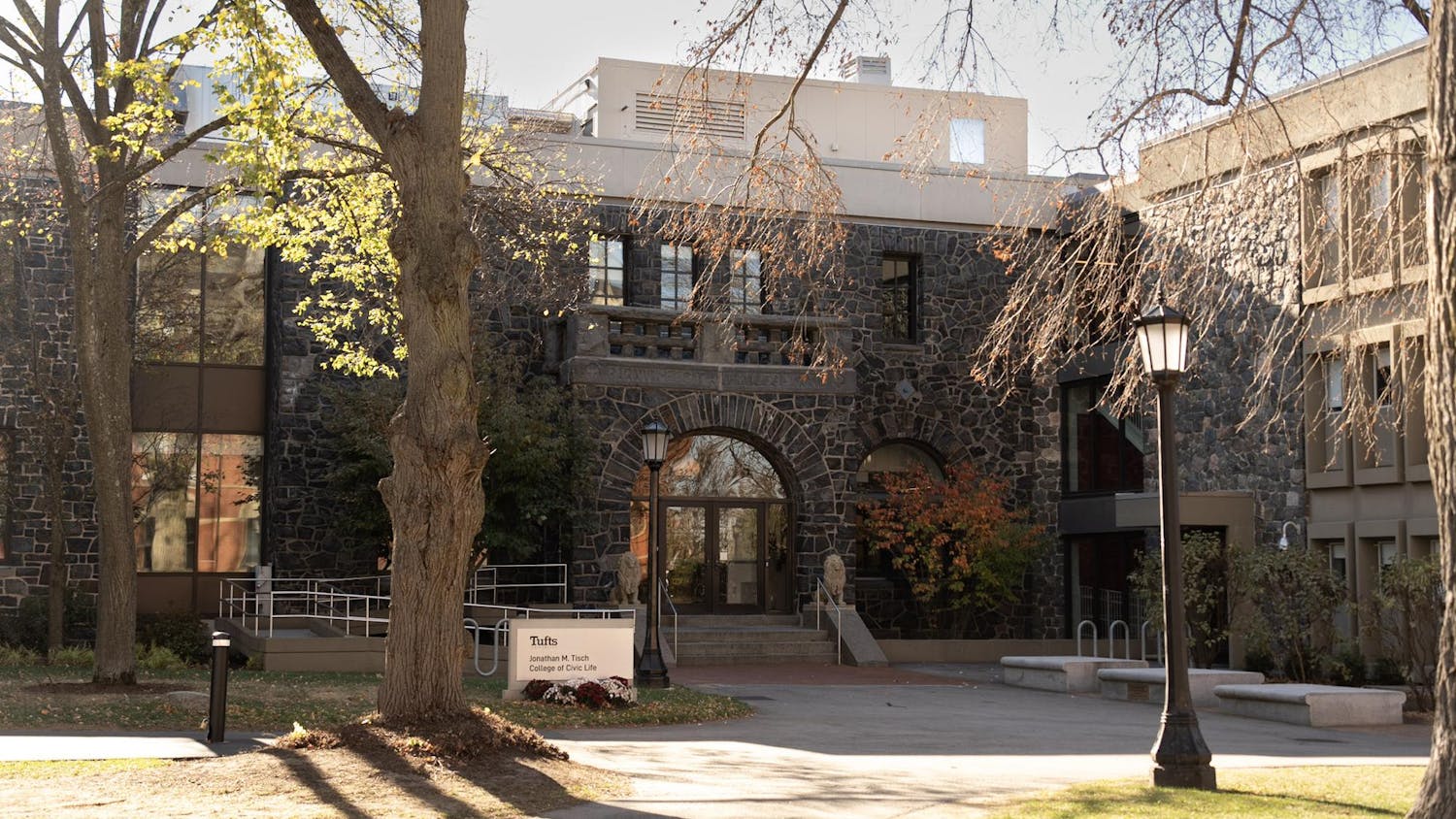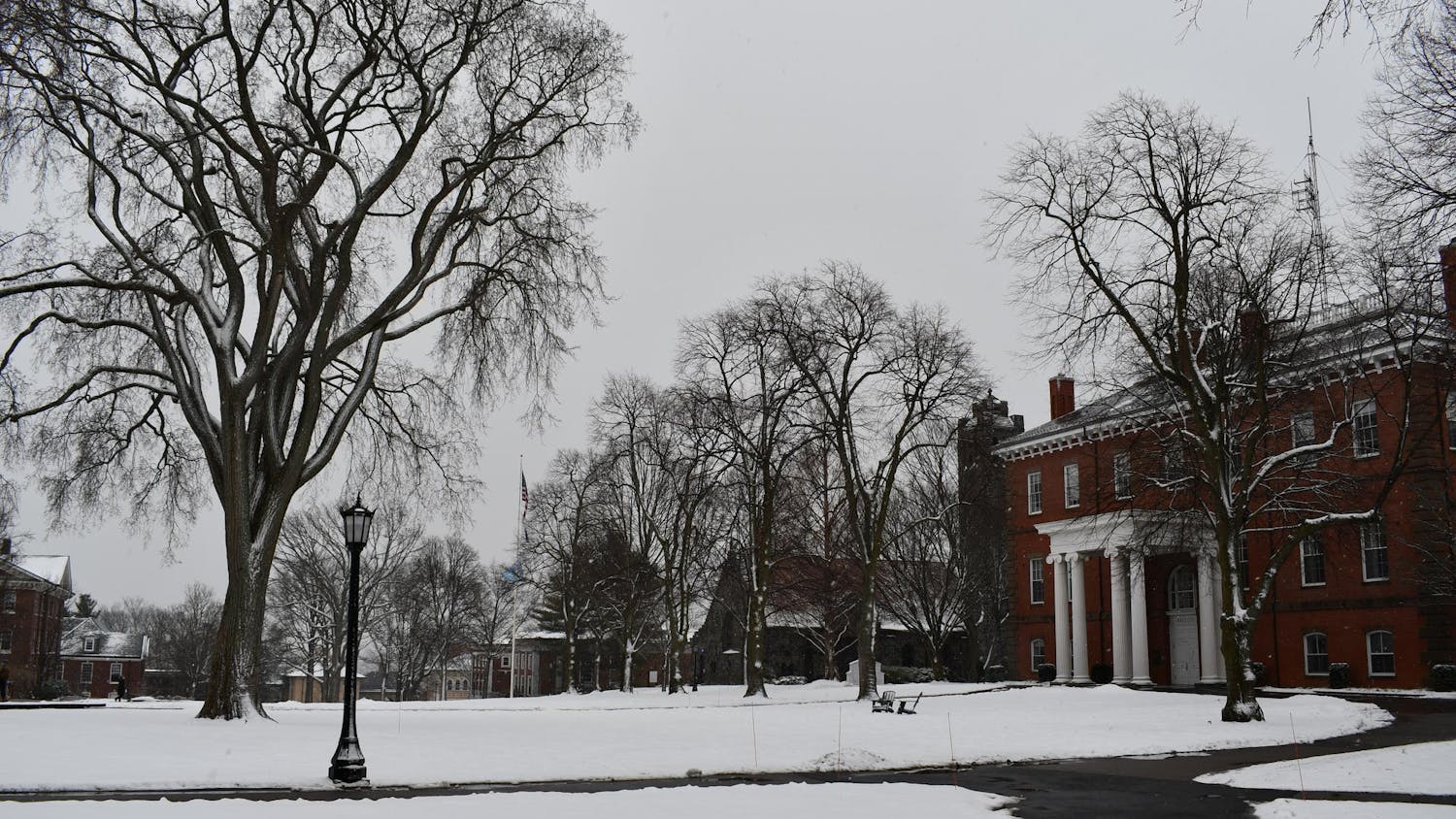In a major shift, the Board of Trustees approved the creation of an investment advisory committee that will allow any member of the Tufts community to call for a review of the university’s investment decisions at their meeting on Nov. 2.
The Responsible Investment Advisory Group will perform ad hoc reviews of the university’s investment into activities with “negative social impact” at the request of members of the Tufts community and make recommendations to the Investment Subcommittee, which steers the university’s $2.4 billion in invested assets.
The Board announced the new entity publicly in a policy titled “Addressing Investor Responsibility at Tufts” posted online on Nov. 12.
The move comes in response to criticisms of the university’s investment strategy from student groups, notably environmental advocates who chalk fossil fuel divestment slogans on the sidewalk outside Ballou Hall every week.
Last April, the Tufts Community Union (TCU) Senate unanimously passed a resolution proposed by a number of activists urging the university to divest. Executive Vice President Mike Howard, in a letter to TCU Senate responding to that resolution, restated the university’s policy against divestment by citing the Divestment Working Group’s 2014 recommendation against such measures.
However, in that letter sent in early October, Howard wrote that University President Anthony Monaco had asked him to work with the Board to create a process for systematically reviewing investment proposals.
“The Board recognizes that from time to time, the goal of maximizing financial resources may entail the support of activities which are believed to have a social impact, and that under certain circumstances it may be appropriate to take these potential social impacts into account when making investment decisions,” the new policy reads.
Steven Galbraith (A'85), a trustee emeritus and New York City investor who chairs the Investment Subcommittee, acknowledged the concerns that have been raised about Tufts investments.
“We recognize that members of the community at times have strong opinions about the way in which the University’s endowment is invested and its potential social impact, and we wanted to create a systematic way for those concerns to be raised, heard and deliberated,” Galbraith wrote in a statement provided to the Daily.
Charming Dube, a non-voting student trustee representative who attended the open session of the Administration and Finance Committee which oversees the Investment Subcommittee, said that none of the trustees opposed the idea and several voiced their interest in the Advisory Group.
“I’d say they were curious,” Dube, a senior, said. “But obviously as trustees, especially on the financial committee, they have to think about it in terms of the balance sheet.”
Tufts Climate Action (TCA), which has led much of the divestment activism on campus this year, has already begun drafting a formal fossil fuel divestment proposal for the Advisory Group which they intend to submit as soon as possible, according to a statement from the group’s leadership provided by senior Hanna Carr.
The student activists say that while they hoped that the Board would pursue complete and immediate divestment, they regard the Advisory Group as “the first step” towards transparency and accountability.
They also praised the fact that the Advisory Group creates a formal process for any cause to be addressed, not just fossil fuel divestment.
The group was, however, disappointed that student groups must find a sponsor instead of directly making proposals to the Advisory Group, but the activists say they already have the backing of the TCU Senate.
That is not the only complication that a proposal can face, however.
For proposals to be considered, they must address the extent of the social harm of a particular investment, show that there is a “breadth of concern” in the Tufts community about that issue and explain how the investment contradicts the university’s mission. The proposal must then offer a method of remedying the social harm at issue and explain how that action would resolve the harm while also considering the effect on the university’s investment returns.
Writing the proposal is only the first step. Next, a student must present their proposal to one of the approved bodies that can sponsor a proposal. These include the TCU Senate, the Faculty Senate, the Alumni Council and any of the graduate student councils.
Once one of the sponsors votes for the Advisory Group to be convened, the university administration must also sign off, including the office of the executive vice president.
If the committee is convened, it will review the proposal, request pertinent information from the University Investment Office and write a non-binding recommendation to the Investment Subcommittee which will make the final decision.
An Advisory Group would be composed of three trustees appointed by the Board, Tufts’ chief financial officer, the vice president of finance or their delegates, as well as two students and two faculty members appointed by the provost, according to the policy.
Despite the policy’s complexities, its existence signals a marked change in the administration’s handling of student demands surrounding the university's investments. The last time students made a major push for divestment in 2014 and 2015, activists emerged from a 55-hour occupation of Monaco’s office with nationwide attention, but little in terms of substantive change.
This time, advocates seem to be getting a helping hand from within Ballou itself in the form of Howard, one of the university’s highest ranking officials.
Howard came to Tufts from Smith College over the summer, where he had been actively involved in that college’s fossil fuel divestment review, the TCA activists say. In mid-October, Smith’s president announced that the western Massachusetts women’s college will divest its endowment from fossil fuels over the next 15 years, according to reporting by the Sophian.
The TCA activists said that when they met with Howard on Nov. 4, they were expecting to argue their case for a new review. Instead, activists were "surprised" by Howard, who informed them that the Board was already ironing out the particulars of the Advisory Group.
“Mike Howard has been very responsive to our calls for action this semester, which we greatly appreciate, having faced opposition from the administration in previous years,” the activists wrote.
They have another meeting scheduled with Howard this Friday to work on their proposal.
Trustees create advisory committee to give students, faculty input on endowment

Ballou Hall is pictured on April 20, 2018.





